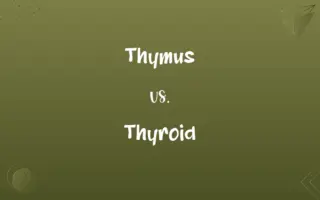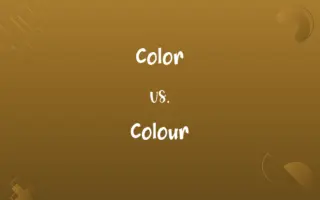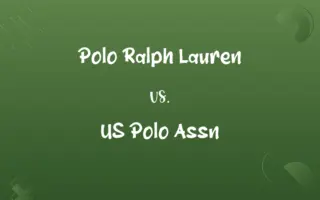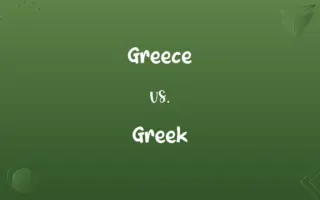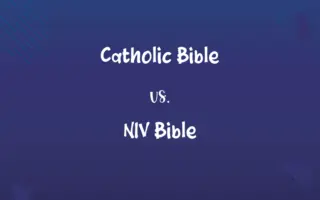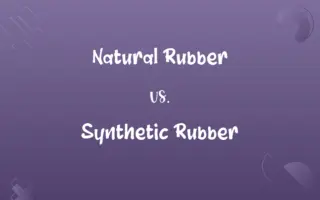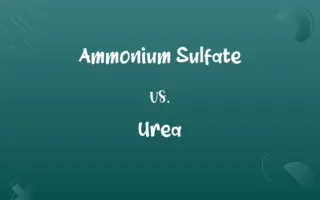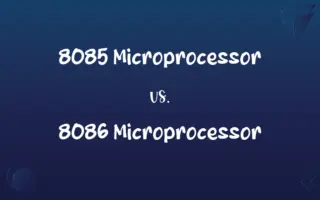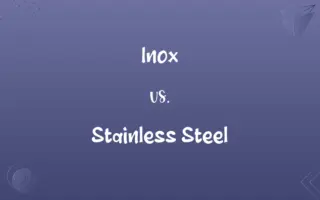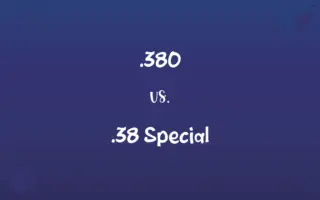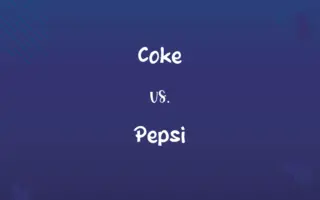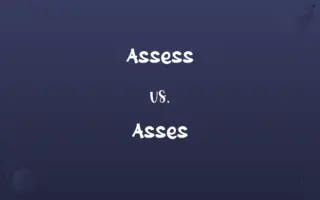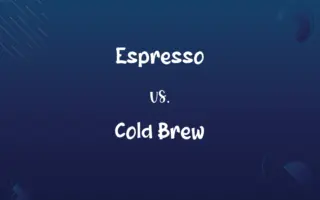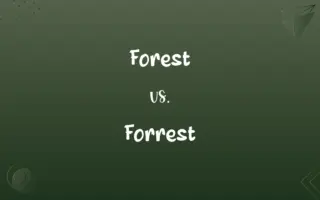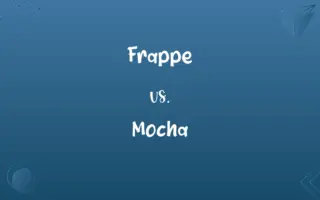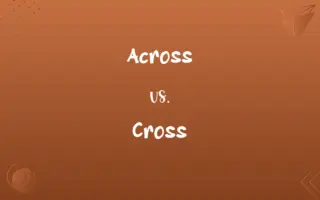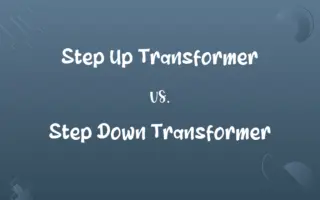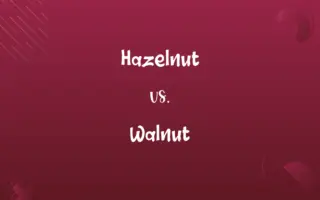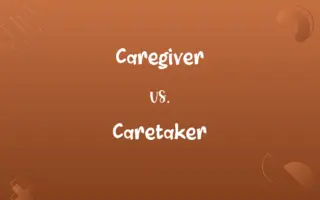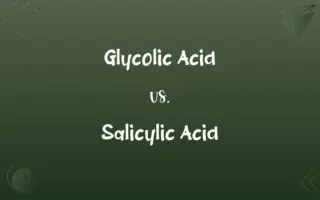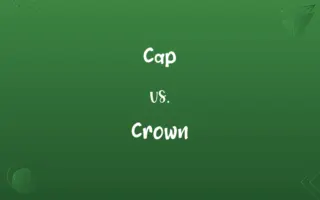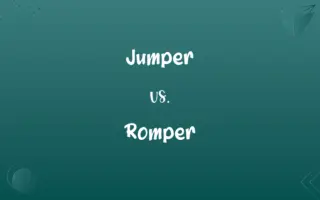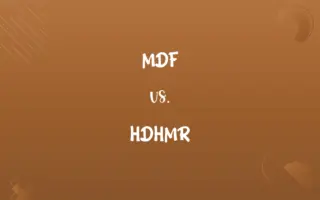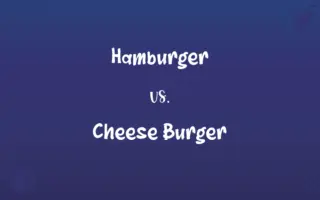Molecules vs. Compounds: Know the Difference

By Shumaila Saeed || Updated on December 25, 2023
Molecules are two or more atoms bonded together; compounds are molecules made of different types of atoms.
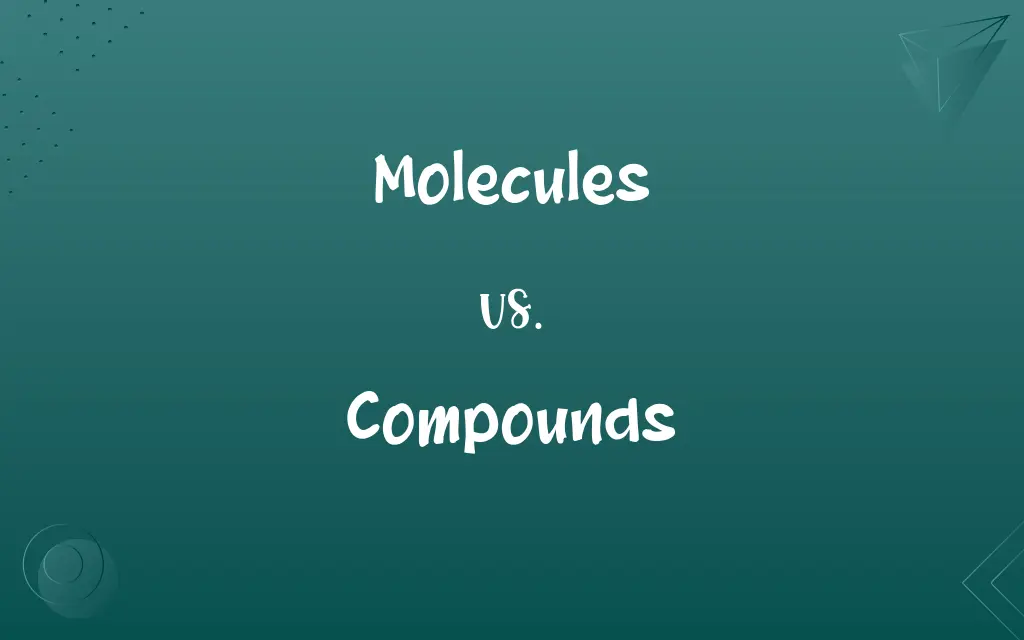
Key Differences
Molecules are the smallest units of a chemical substance, consisting of two or more atoms bonded together. Compounds, however, specifically refer to molecules that contain at least two different types of atoms. This distinction means all compounds are molecules, but not all molecules are compounds.
Shumaila Saeed
Nov 15, 2023
The structure of molecules defines the physical and chemical properties of a substance. Compounds, because they are made of different elements, often have properties distinct from their constituent elements. This contrast highlights the diverse nature of compounds compared to simpler molecules.
Shumaila Saeed
Nov 15, 2023
Molecules can be elements or compounds. For example, O₂ (oxygen gas) is a molecule but not a compound, whereas H₂O (water) is both a molecule and a compound. This illustrates how compounds are a subset of molecules with more complex composition.
Shumaila Saeed
Nov 15, 2023
In molecules, atoms are bonded together in specific geometrical arrangements. In compounds, these arrangements involve atoms from different elements, leading to the formation of substances with unique characteristics.
Shumaila Saeed
Nov 15, 2023
Molecular interactions govern the behavior of substances in various states. Compounds, due to their varied elemental composition, often participate in more complex chemical reactions, showcasing the diverse chemical behavior of compounds compared to simpler molecules.
Shumaila Saeed
Nov 15, 2023
ADVERTISEMENT
Comparison Chart
Composition
Can consist of one or more types of atoms.
Always consist of two or more different atoms.
Shumaila Saeed
Nov 15, 2023
Complexity
Can be simple (elemental molecules) or complex.
Always complex, due to different atoms.
Shumaila Saeed
Nov 15, 2023
Chemical Properties
Defined by the type and arrangement of atoms.
Defined by the nature of the constituent elements.
Shumaila Saeed
Nov 15, 2023
Types
Include both elemental molecules and compounds.
A subset of molecules with diverse elements.
Shumaila Saeed
Nov 15, 2023
ADVERTISEMENT
Molecules and Compounds Definitions
Molecules
Molecules represent the smallest unit of a chemical compound that retains its chemical properties.
A carbon dioxide molecule carries the properties of the gas.
Shumaila Saeed
Nov 15, 2023
Compounds
Compounds are formed through chemical reactions.
Rust is a compound formed when iron reacts with oxygen.
Shumaila Saeed
Nov 15, 2023
Molecules
Molecules are the basic building blocks of matter.
Water molecules are essential for all known forms of life.
Shumaila Saeed
Nov 15, 2023
Compounds
Compounds are molecules that contain at least two different elements.
Salt (NaCl) is a compound of sodium and chlorine.
Shumaila Saeed
Nov 15, 2023
Molecules
A molecule is a group of atoms bonded together.
A water molecule consists of two hydrogen atoms and one oxygen atom.
Shumaila Saeed
Nov 15, 2023
ADVERTISEMENT
Compounds
Compounds have properties different from their constituent elements.
Water, a compound, has different properties than its elements, hydrogen and oxygen.
Shumaila Saeed
Nov 15, 2023
Molecules
Molecules are entities with multiple atoms in a definite arrangement held by chemical bonds.
Oxygen molecules in the air are made up of two oxygen atoms.
Shumaila Saeed
Nov 15, 2023
Compounds
A compound is a substance formed when two or more different types of atoms are chemically bonded together.
Water is a compound made from hydrogen and oxygen.
Shumaila Saeed
Nov 15, 2023
Molecules
Molecules can be elements or combinations of elements (compounds).
The oxygen we breathe is a molecule consisting of two oxygen atoms.
Shumaila Saeed
Nov 15, 2023
Compounds
Compounds are chemical substances with a unique and fixed ratio of elements.
Carbon dioxide, a compound, always consists of one carbon and two oxygen atoms.
Shumaila Saeed
Nov 15, 2023
Molecules
The smallest particle of a substance that retains the chemical and physical properties of the substance and is composed of two or more atoms; a group of like or different atoms held together by chemical forces.
Shumaila Saeed
Oct 19, 2023
Compounds
To combine so as to form a whole; mix
Tin was often compounded with lead to make pewter.
Shumaila Saeed
Oct 19, 2023
Compounds
To produce or create by combining two or more ingredients or parts; compose or make up
Pharmacists compounding prescriptions.
Shumaila Saeed
Oct 19, 2023
Compounds
To settle (a debt, for example) by agreeing on an amount less than the claim; adjust.
Shumaila Saeed
Oct 19, 2023
Compounds
To add to or intensify so as to make worse
"The university authorities ... compounded their crime in dismissing [the professor] by denying that their action ... reflected any abridgment of academic freedom" (John Kenneth Galbraith).
Shumaila Saeed
Oct 19, 2023
Compounds
To make worse by being an additional or intensifying factor
High winds compounded the difficulties of the firefighters.
Shumaila Saeed
Oct 19, 2023
Compounds
Consisting of two or more substances, ingredients, elements, or parts.
Shumaila Saeed
Oct 19, 2023
Compounds
(Linguistics) A word that consists either of two or more elements that are independent words, such as loudspeaker, self-portrait, or high school, or of specially modified combining forms of words, such as Greek philosophia, from philo-, "loving," and sophia, "wisdom."
Shumaila Saeed
Oct 19, 2023
Compounds
(Chemistry) A pure, macroscopically homogeneous substance consisting of atoms or ions of two or more different elements in definite proportions that cannot be separated by physical means. A compound usually has properties unlike those of its constituent elements.
Shumaila Saeed
Oct 19, 2023
Compounds
A building or buildings, especially a residence or group of residences, set off and enclosed by a barrier.
Shumaila Saeed
Oct 19, 2023
Repeatedly Asked Queries
Can molecules exist as elements?
Yes, molecules can be elemental, like O₂ (oxygen), or they can be compounds made of different elements.
Shumaila Saeed
Nov 15, 2023
What defines a compound?
A compound is a substance formed when two or more different elements are chemically bonded in a fixed ratio.
Shumaila Saeed
Nov 15, 2023
Can compounds be broken down into simpler substances?
Yes, compounds can be broken down into their constituent elements or simpler substances through chemical reactions.
Shumaila Saeed
Nov 15, 2023
What's an example of a compound?
Water (H₂O) is an example of a compound, composed of hydrogen and oxygen.
Shumaila Saeed
Nov 15, 2023
What is a molecule?
A molecule is a group of atoms bonded together, representing the smallest fundamental unit of a chemical compound that has the chemical properties of that compound.
Shumaila Saeed
Nov 15, 2023
How are compounds named?
Compounds are named based on the elements they contain and their chemical structure, often using IUPAC nomenclature.
Shumaila Saeed
Nov 15, 2023
Are all molecules compounds?
No, not all molecules are compounds. Molecules can be compounds or they can be made of the same element.
Shumaila Saeed
Nov 15, 2023
Do compounds have unique properties?
Yes, compounds have unique properties that are often different from the properties of the elements they are composed of.
Shumaila Saeed
Nov 15, 2023
Are the properties of a compound predictable from its elements?
The properties of a compound are not always directly predictable from its constituent elements, as they often exhibit new characteristics.
Shumaila Saeed
Nov 15, 2023
Are compounds always made of multiple elements?
Yes, compounds are always made up of two or more different elements.
Shumaila Saeed
Nov 15, 2023
What are molecular bonds?
Molecular bonds are the forces that hold the atoms together within a molecule.
Shumaila Saeed
Nov 15, 2023
What's the difference between organic and inorganic molecules?
Organic molecules contain carbon and are typically found in living organisms, while inorganic molecules do not necessarily contain carbon and are more often found in non-living systems.
Shumaila Saeed
Nov 15, 2023
Can compounds be naturally occurring or synthetic?
Compounds can be both naturally occurring, like minerals, or synthetic, like plastics.
Shumaila Saeed
Nov 15, 2023
What role do compounds play in chemistry?
Compounds are central to chemistry as they make up virtually all chemical substances, except for elemental molecules.
Shumaila Saeed
Nov 15, 2023
What is an example of a simple molecule?
Oxygen (O₂) is an example of a simple molecule, consisting of two atoms of the same element.
Shumaila Saeed
Nov 15, 2023
Are there different types of molecular bonds?
Yes, molecular bonds include ionic, covalent, and metallic bonds, each with distinct properties and behaviors.
Shumaila Saeed
Nov 15, 2023
Are all compounds stable?
Not all compounds are stable; some are reactive or decompose under certain conditions.
Shumaila Saeed
Nov 15, 2023
Can molecules exist in different states of matter?
Yes, molecules can exist in solid, liquid, or gaseous states depending on the substance and conditions.
Shumaila Saeed
Nov 15, 2023
How do molecules interact with each other?
Molecules interact through various forces like ionic, covalent, and hydrogen bonding, influencing the properties of the substance.
Shumaila Saeed
Nov 15, 2023
Can the composition of a compound vary?
No, compounds have a fixed, definite proportion of elements by mass, which distinguishes them from mixtures.
Shumaila Saeed
Nov 15, 2023
Share this page
Link for your blog / website
HTML
Link to share via messenger
About Author
Written by
Shumaila SaeedShumaila Saeed, an expert content creator with 6 years of experience, specializes in distilling complex topics into easily digestible comparisons, shining a light on the nuances that both inform and educate readers with clarity and accuracy.
